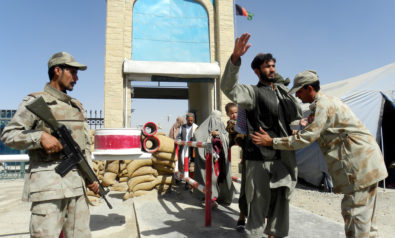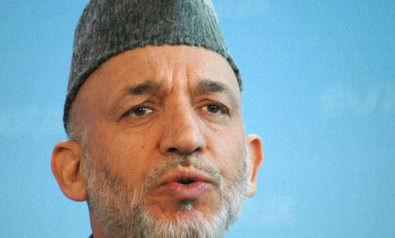As the US prepares to exit Afghanistan, what will be the consequences?
Background
As the conflict in Afghanistan enters its 12th year, the US is poised to withdraw 34,000 troops from the war-torn country by next year. The consequences of the withdrawal will be enormous. The Taliban remain a serious threat and, besides the danger that extremism would continue to grow, the US would also lose a valuable foothold in a region that contains a neighboring nuclear state: Pakistan.
There are currently 66,000 American troops in Afghanistan. In his State of the Union address, President Obama vowed that the war would be over by 2014. However, the plan is that a contingent of troops will remain. The administration’s proposals vary, between 2,500 to 9,000 troops.
President Obama made ending the war in Afghanistan a centerpiece of his foreign policy during the 2012 presidential campaign. He recently stated that “We have achieved our central goal, or have come very close to achieving our central goal, which is to de-capacitate al-Qaeda, to dismantle them, to make sure that they can’t attack us again.”
During a press conference on January 11, 2013, President Obama emphasized that the US was not considering a complete withdrawal of troops. According to President Obama, American forces will revert to a “training, assisting, and advising role” by the spring of this year. This essentially means that remaining US forces will include special operations forces. Their task will be to engage in raids against Al-Qaeda and other extremist groups. Remaining troops would also conduct air strikes to reinforce NATO positions across the country.
Right now, Afghan forces lead 80% of combat operations. This number is expected to rise as American troops begin to return this spring. According to estimates, around 352,000 Afghans are in training or on duty in the army or the police force. These numbers could decrease, however, if Western governments reduce the amount of aid to Afghanistan. Although Afghan forces will be picking up the burden from US troops, it is uncertain whether or not they will be a competent organization.
Why It Matters
The war in Afghanistan is the longest war in American history. Pressure is growing to decisively end the war. Recently the US Senate called for a drawdown before the April 2014 deadline, showing how unpopular the war has become in Congress—to say nothing of how unpopular it has become among the American public. However, the greatest concern among policymakers is that a smaller US military footprint in Afghanistan will either be insufficient to prevent the country from sliding into a civil war, or will fail to prevent Afghanistan from once again becoming a haven for extremism. While drone strikes and other military operations have decimated Al-Qaeda in Afghanistan, the Taliban remain a serious threat. Attacks by the Taliban against Afghan National Security Forces over the past twelve months have doubled. Also, the Taliban recently launched a deadly assault on Afghan traffic police headquarters in Kabul.
The elephant in the room is Pakistan. Also of great importance is the US ability to strike at terrorists staked out in the Federally Administered Tribal Areas, and to contain an unstable nuclear state. The US does not trust Pakistan. It is one of the worst kept secrets that the Inter-Services Intelligence, Pakistan’s intelligence agency, has ties to extremists. It is important to remember that Bin Laden was killed in Pakistan, not Afghanistan. Pakistan was not even alerted to the operation to kill Bin Laden. Al-Qaeda, while on the run in Afghanistan, has taken root in Pakistani cities such as Karachi.
While Afghanistan must certainly be prevented from becoming a base for terrorism again, it is Pakistan that is the most important card. The presence of American troops in Afghanistan gives Pakistan a pretext to squeeze the US for aid. If the US leaves Afghanistan, a power vacuum opens up in Afghanistan, which would most likely be filled with a grab bag of Pakistan’s rivals—Iran, Uzbekistan, Tajikistan, and, of course, India. Many have likened the conflict in Afghanistan to America’s war in Vietnam. While comparisons of American conflicts to Vietnam are tired, in this case, the comparison is apt—and revealing. Like in Vietnam, the US is fighting an war that seemingly has no end, in the name of an unpopular government that has lost legitimacy. The US is fighting against a dangerous ideology, but doing so in Afghanistan, an admittedly unimportant state. A brokered peace deal with the Taliban seems likely, and as distasteful as it seems, it may be the only viable political way forward. This entails a lot of uncertainy. At the same time, it seems that the US is taking the course of leaving Afghanistan, even if it means having to deal with such uncertainty.
For more than 10 years, Fair Observer has been free, fair and independent. No billionaire owns us, no advertisers control us. We are a reader-supported nonprofit. Unlike many other publications, we keep our content free for readers regardless of where they live or whether they can afford to pay. We have no paywalls and no ads.
In the post-truth era of fake news, echo chambers and filter bubbles, we publish a plurality of perspectives from around the world. Anyone can publish with us, but everyone goes through a rigorous editorial process. So, you get fact-checked, well-reasoned content instead of noise.
We publish 2,500+ voices from 90+ countries. We also conduct education and training programs on subjects ranging from digital media and journalism to writing and critical thinking. This doesn’t come cheap. Servers, editors, trainers and web developers cost money.
Please consider supporting us on a regular basis as a recurring donor or a sustaining member.
Support Fair Observer
We rely on your support for our independence, diversity and quality.
Will you support FO’s journalism?
We rely on your support for our independence, diversity and quality.








